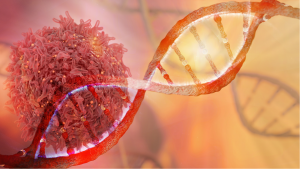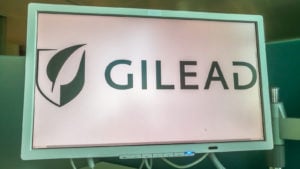Cancer Drug Approval? 3 Biotech Stocks on the Brink of Breakthroughs
Autologous chimeric antigen receptor T cell therapy is 0ne of the most promising, relatively new types of cancer treatments. CAR T involves “reprogramming” patients’ T cells, which fight hostile cells within the body. Specifically, CAR T treatments work by reconfiguring T cells so that they attack proteins found on tumors. CAR T also attacks other cells altered by tumors. One reason this type of therapy is so promising is that it produces treatments that work well within each patients’ body. That’s because the treatments are specifically tailored to each patients’ T cells. This revolutionary techology has brought up some of the best cancer drug stocks we have ever seen.
Moreover, unlike other cancer treatments, CAR T drugs enlist cells that come from the patients themselves in the cancer-fighting effort. In other words, CAR T produces treatments that are “personalized” to each patient. Finally, “After a one-time infusion, the CAR T cells can continue to multiply in the patient’s body after being administered,” Bristol-Myers Squibb (NYSE:BMY) explained. Here are three of the best cancer drug stocks that can advance tremendously, thanks in large part to the CAR T drugs that they’re developing.
Bristol-Myers Squibb (BMY)

In January, Bristol Myers-Squibb (NYSE:BMY) reported extremely positive data for one of its CAR T therapies. The therapy, Breyanzi, is a treatment for chronic lymphocytic leukemia (CLL). According to Fierce Pharma, CLL is ” the most common form of leukemia.
“In the Phase 1/2 trial “Breyanzi eradicated signs of cancer in 18.4% of patients with heavily pretreated CLL or small lymphocytic lymphoma (SLL). ” None of the patients in the latter group “experienced disease progression or deaths by the data cutoff,” enabling the treatment to attain the study’s primary endpoint. Also worth noting is that the patients in the study had unsuccessfully tried many other drugs.
On a negative note, the overall response rate of the patients in the study, which represents the proportion of the participants whose condition improved, came in at 42.9%. This wasn’t considered statistically significant. Still, given the fact that the patients had unsuccessfully tried so many other treatments in the past, I believe that the data was impressive.
Last year, the Food and Drug Administration approved Breyzani as a treatment for “adult patients with large B-cell lymphoma.” This is another type of blood cancer.
Also noteworthy is that BMY is testing the drug’s efficacy in many types of blood cancer. I believe that the drug can ultimately become a huge blockbuster, significantly lifting Bristol-Myer’s financial results and BMY stock in the process. Consequently, I view BMY as one of the best cancer drug stocks.
Arcelix (ACLX)

Arcelix (NASDAQ:ACLX) developed a CAR T based treatment called CART-ddBCMA. It is a potential treatment for patients with certain kinds of a prevalent blood cancer known as multiple myeloma.
In a Phase 1 study of CART-ddBCMA, the condition of all 38 patients who received the treatment improved. Further, 71% of the patients showed no signs of cancer after the study was complete.
Gilead (NASDAQ:GILD) in December entered into a partnership with Arcelix two months after the strong data on CART-ddBCMA was unveiled. Under the deal, Arcelix received $225 million of cash from Gilead, while GILD bought $100 million of ACLX stock. Furthermore, Arcelix is eligible to receive more money from Gilead if CART-ddBCMA is successful down the road.
I believe that Arcelix can become a pharmaceutical powerhouse. I view it as one of the best cancer drug stocks.
Gilead (GILD)

Gilead’s (NASDAQ:GILD) Kite unit specializes in developing CAR T therapies. The company’s Yescarta therapy recently showed strong efficacy as a treatment for a type of blood cancer called large B-cell lymphoma. Among the 62 patients who received Yescarta, 71% showed no signs of disease after three months. This combats the 12% expected with standard of care, Gilead reported.
And in a Phase 3 trial earlier this year, Yescarta became “the first treatment in nearly 30 years to improve overall survival (OS) in relapsed/refractory large B-cell lymphoma,” BioSpace reported. Yescarrta was approved as a treatment for large B-cell lymphoma last year.
In the second quarter, Yescarta’s sales jumped 29% versus the same period a year earlier to $380 million.
In December, Yescarta was given to nine patients with blood cancers in their brain or spinal cords. Very encouragingly, “78% of patients saw their tumors shrink or disappear due to the treatment, and 67% of patients showed a complete response, in which their tumors disappeared. ”
Yescarta’s sales are likely to continue to jump going forward. The treatment is likely to be approved for use in many new indications. Additionally, Gilead looks well-positioned to benefit a great deal from its partnership with Arcelix.
On the date of publication, Larry Ramer did not have (either directly or indirectly) any positions in the securities mentioned in this article. The opinions expressed in this article are those of the writer, subject to the InvestorPlace.com Publishing Guidelines.

